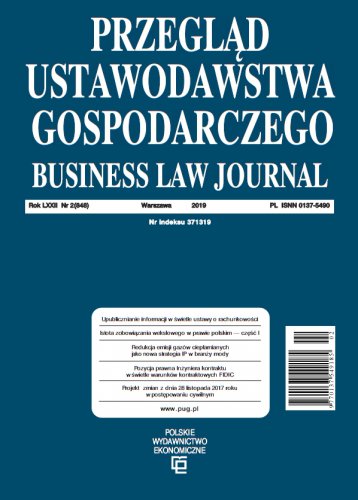Journal of Business Law 01/2024
ISSN: 0137-5490
Pages: 44
Publication date: 2024
Place publication: Warszawa
Binding: paperback
Format: A4
Publication date: 2024
Place publication: Warszawa
Binding: paperback
Format: A4
DOI: 10.33226/0137-5490.2024.1.1
JEL: G21, H53, H54, H81
DOI: 10.33226/0137-5490.2024.1.2
JEL: K22
DOI: 10.33226/0137-5490.2024.1.3
JEL: K12, K15, K24, K49
Squeeze out of shares of a limited liability company participating in a group of companies, s. 24-30
DOI: 10.33226/0137-5490.2024.1.4
JEL: K29
DOI: 10.33226/0137-5490.2024.1.5
JEL: K150, K200
DOI: 10.33226/0137-5490.2024.1.6
JEL: K34
| Odbiór osobisty | 0 € |
| Inpost Paczkomaty | 4 € |
| Kurier Inpost | 4 € |
| Kurier FedEX | 4 € |
| Free delivery in Reader's Club | from 47 € |

